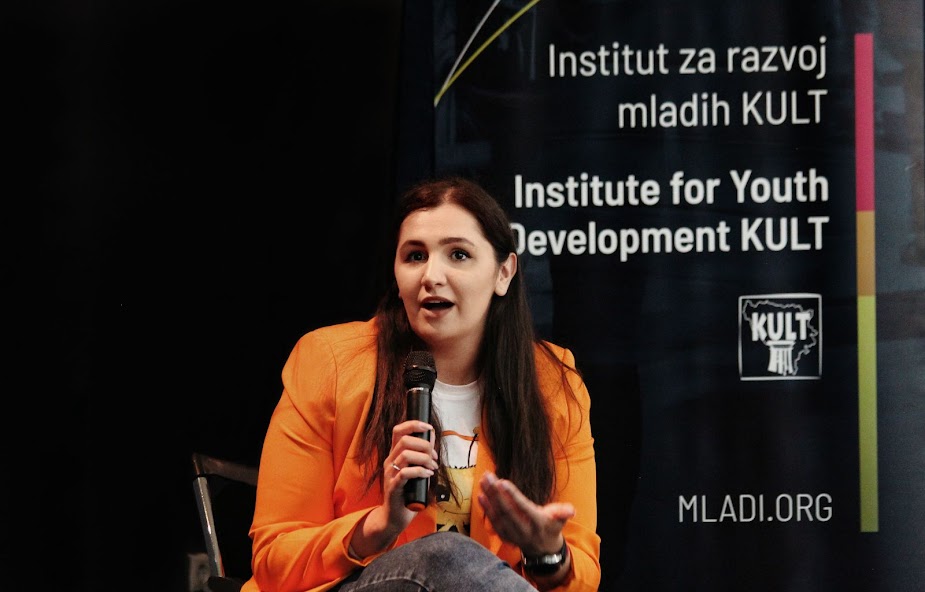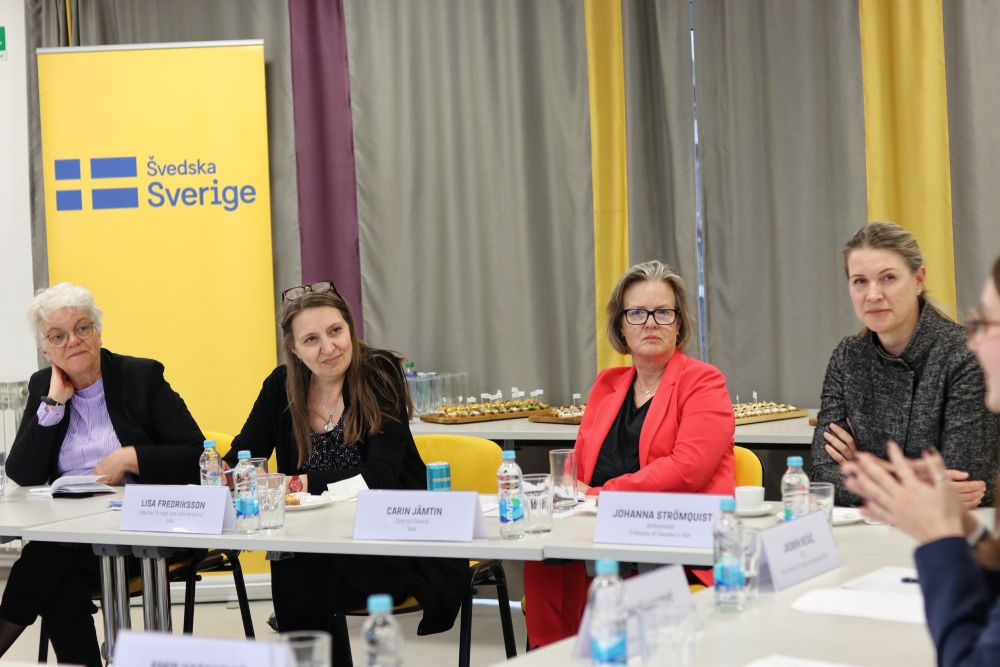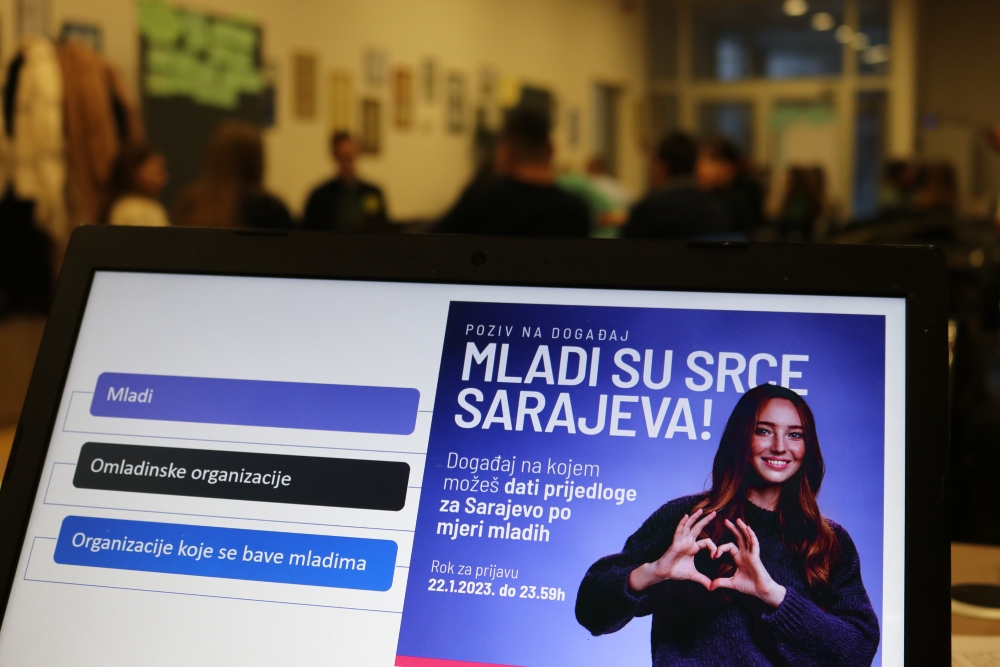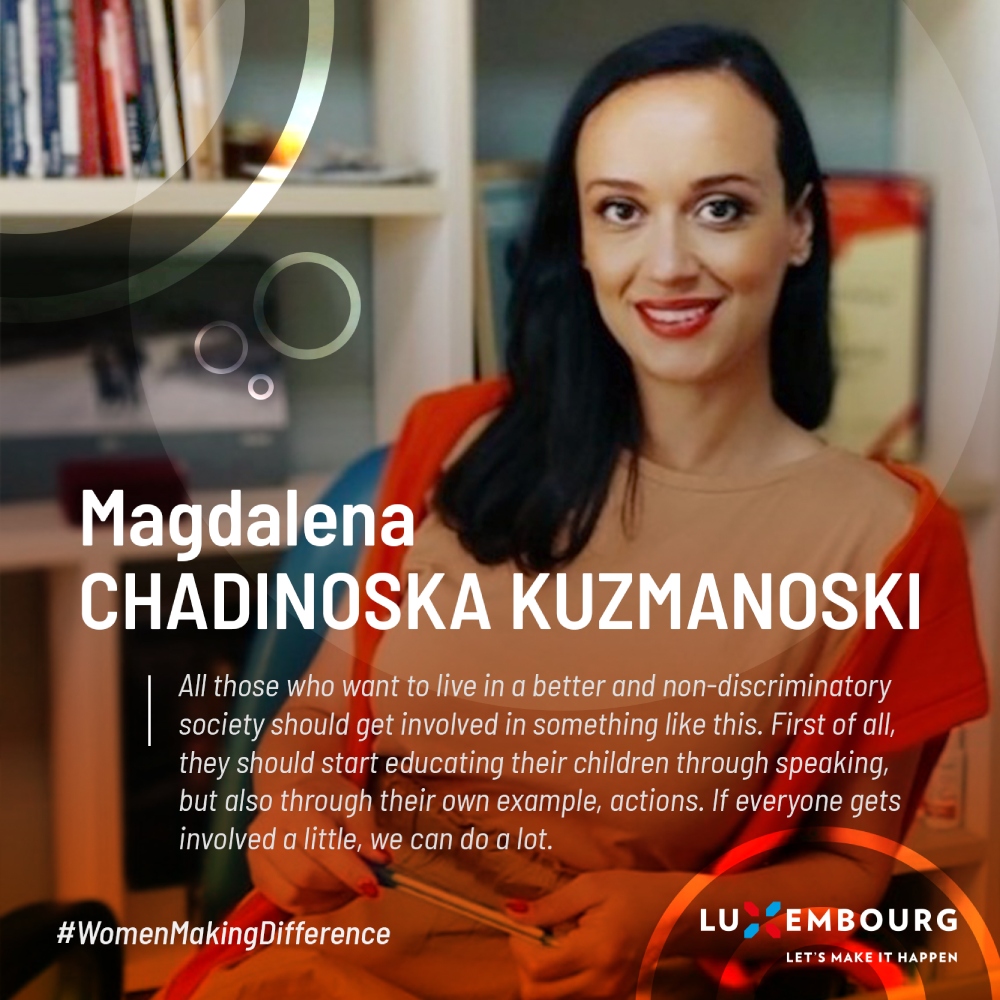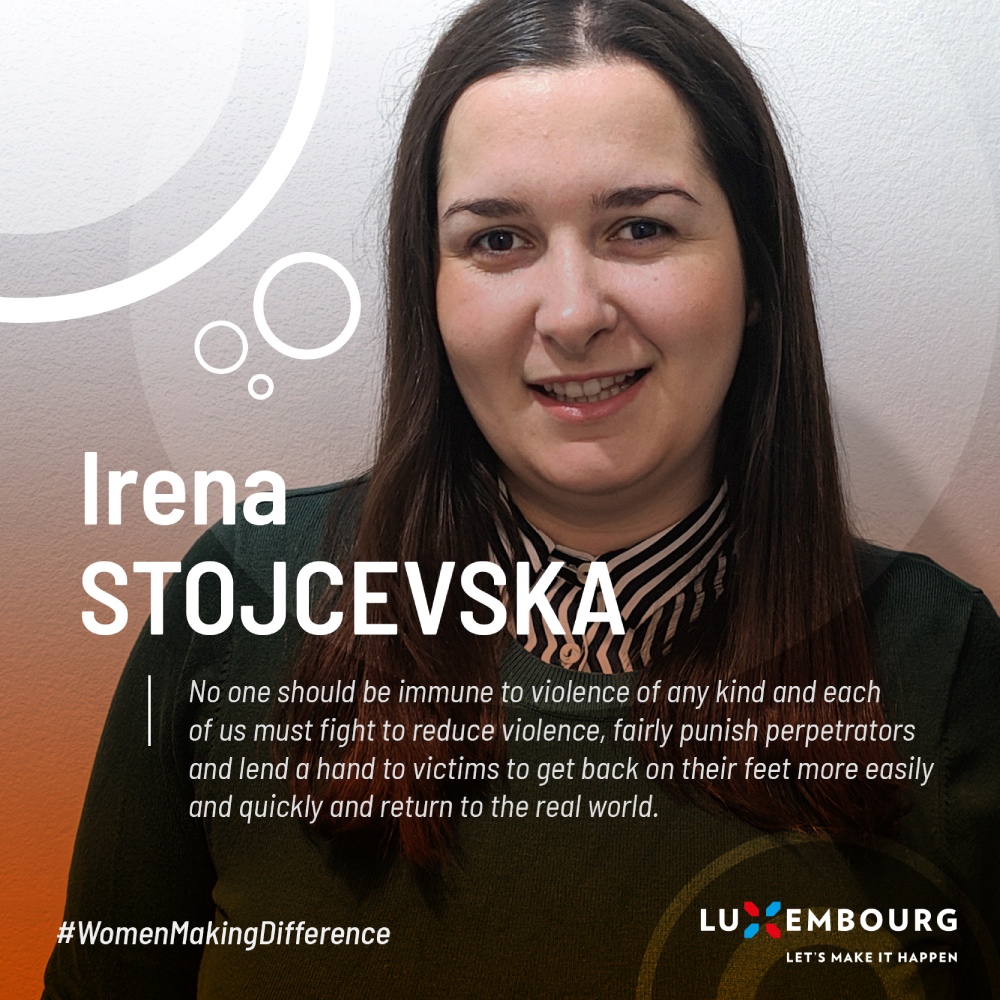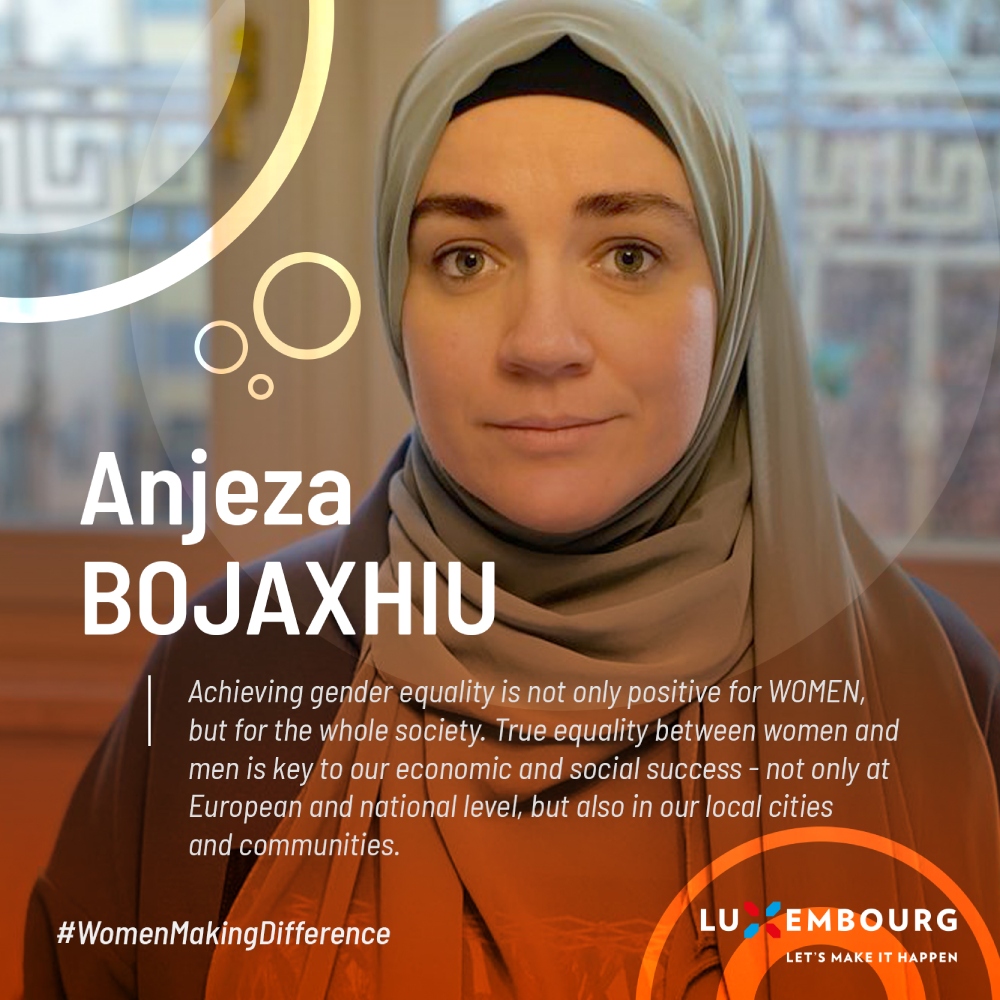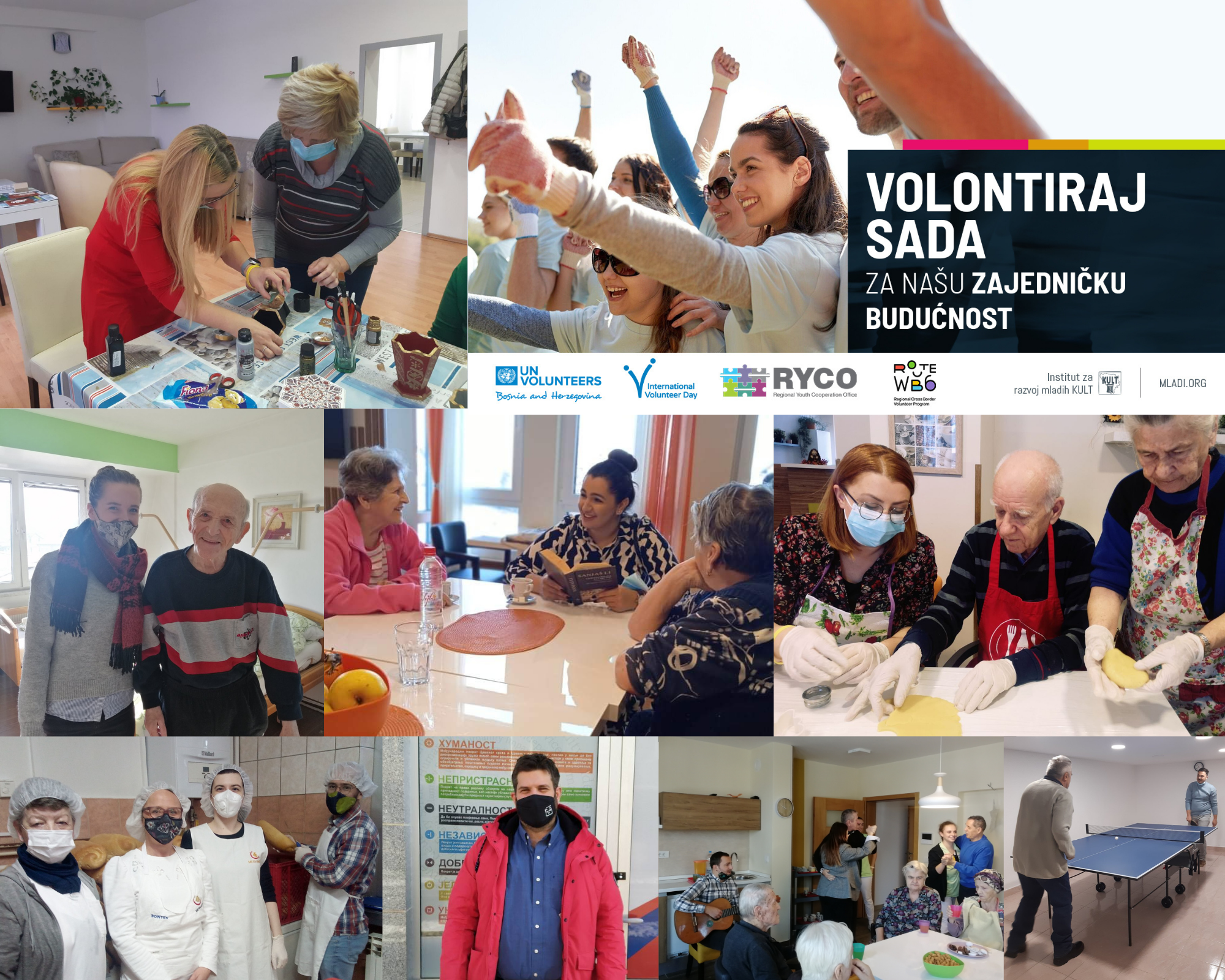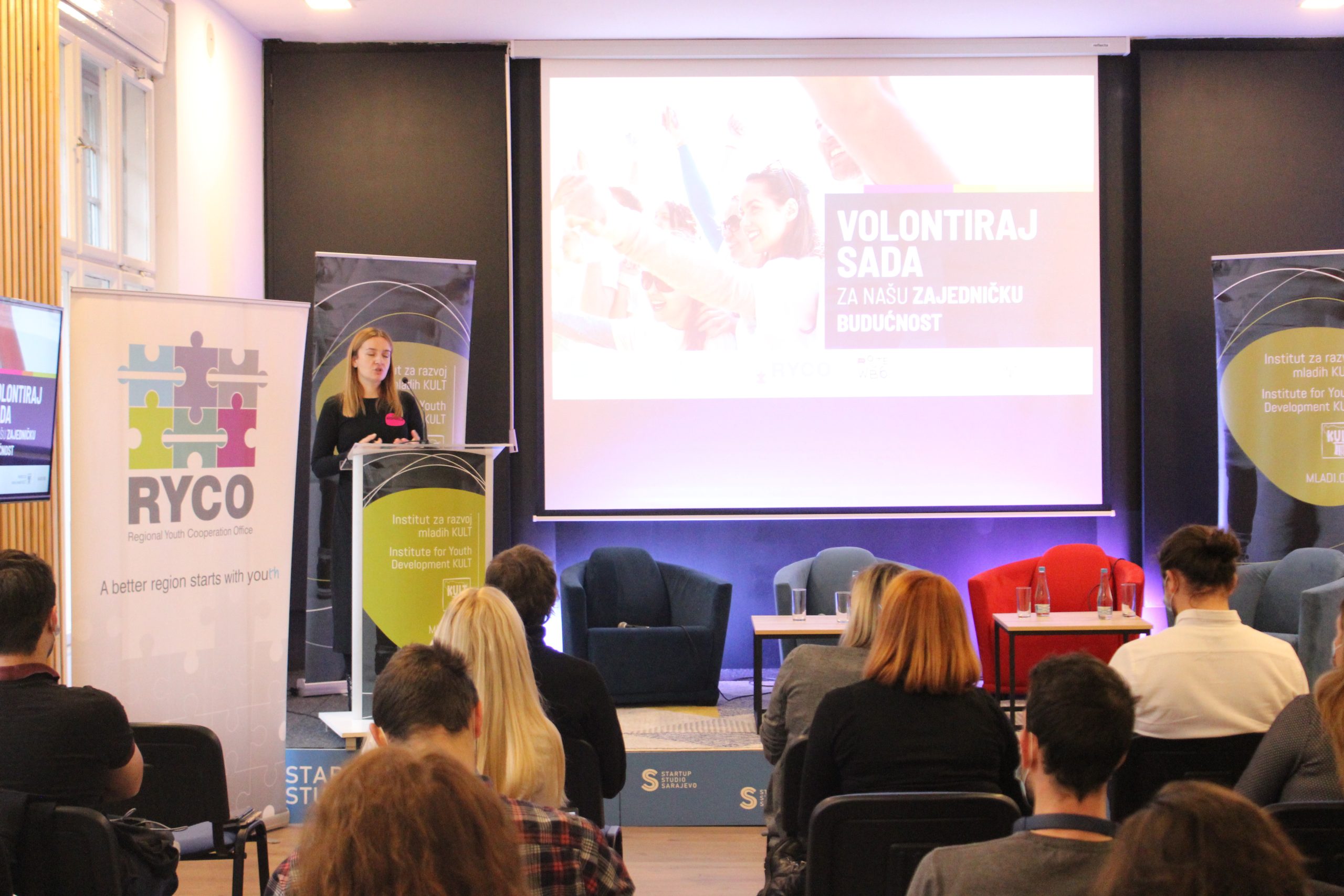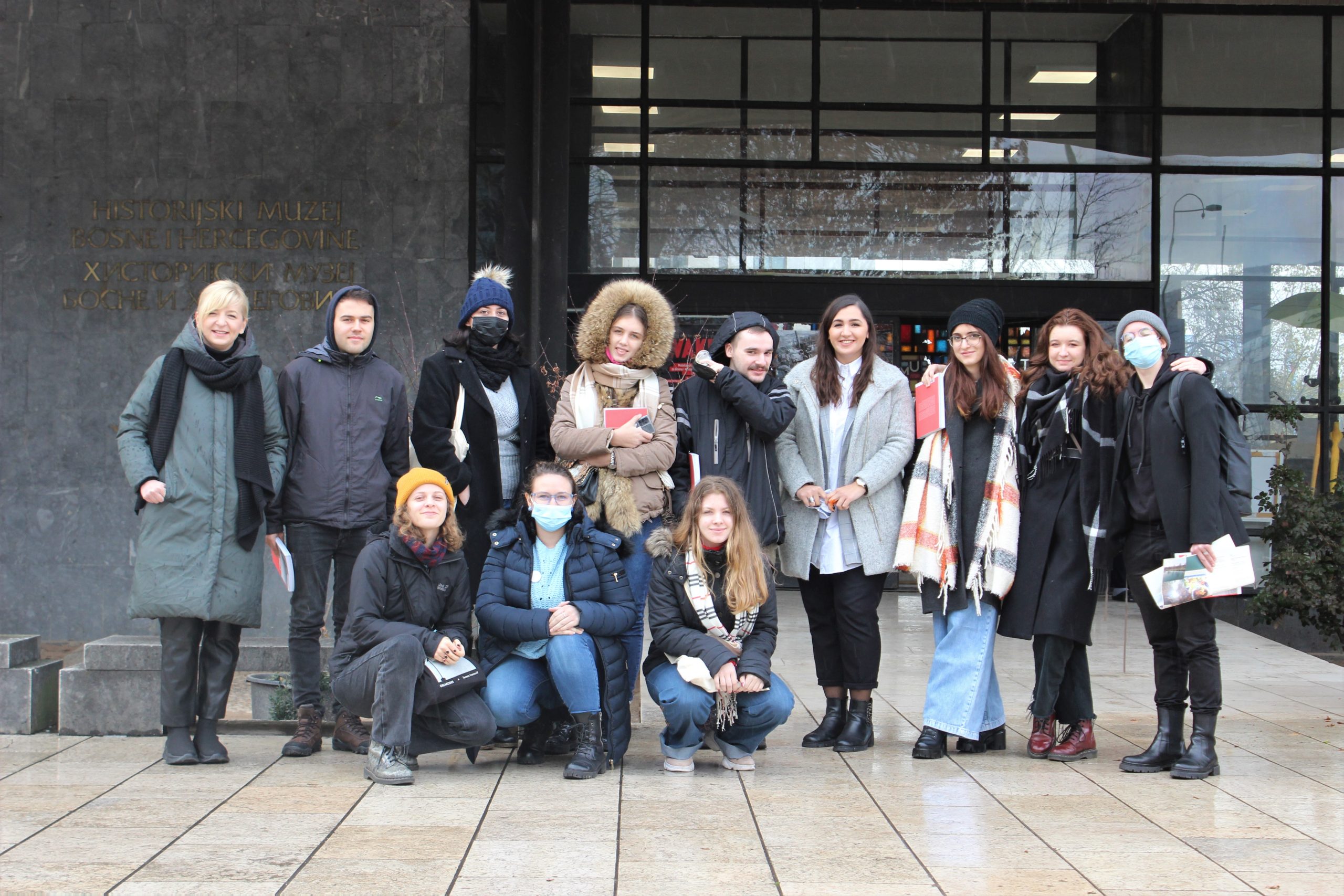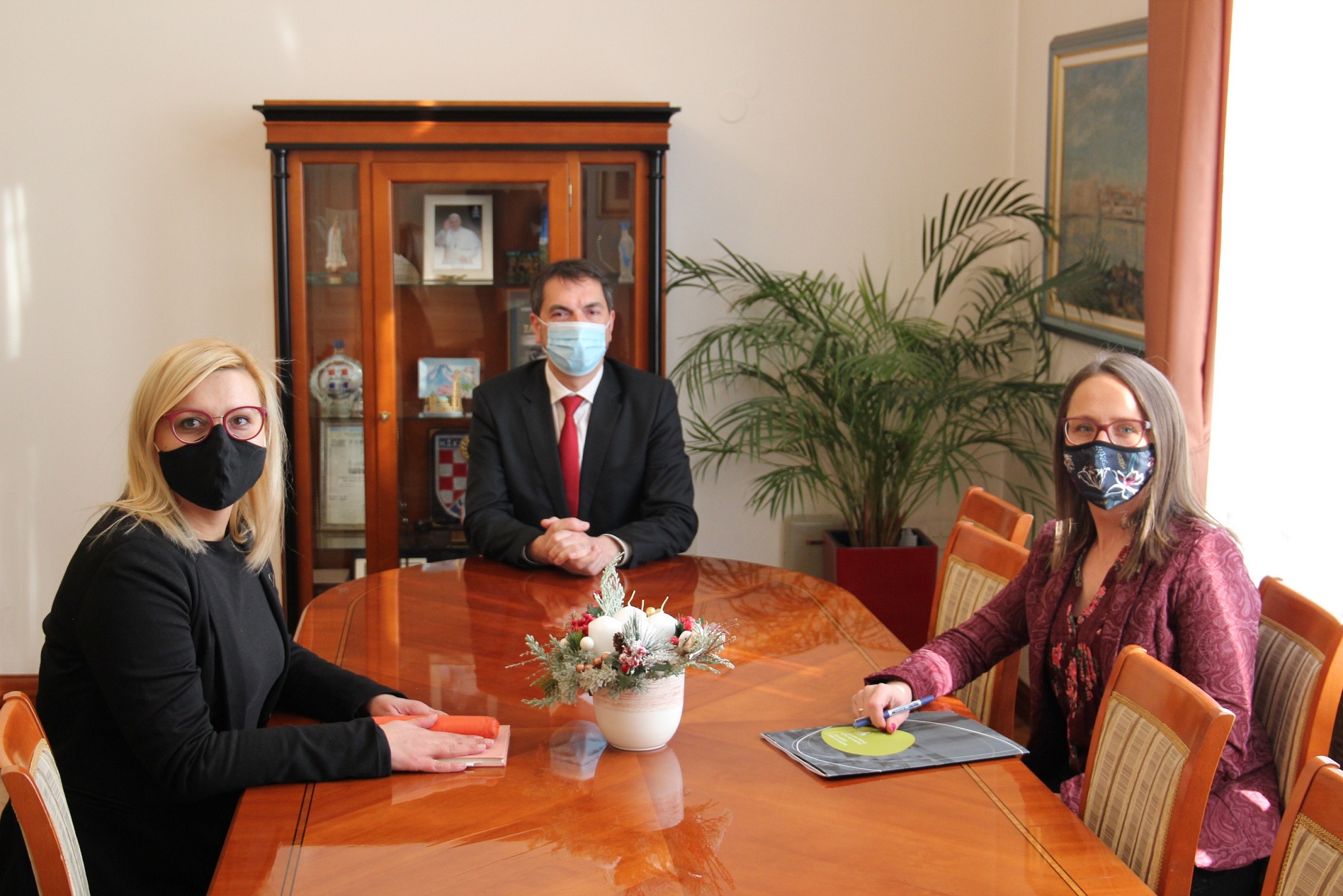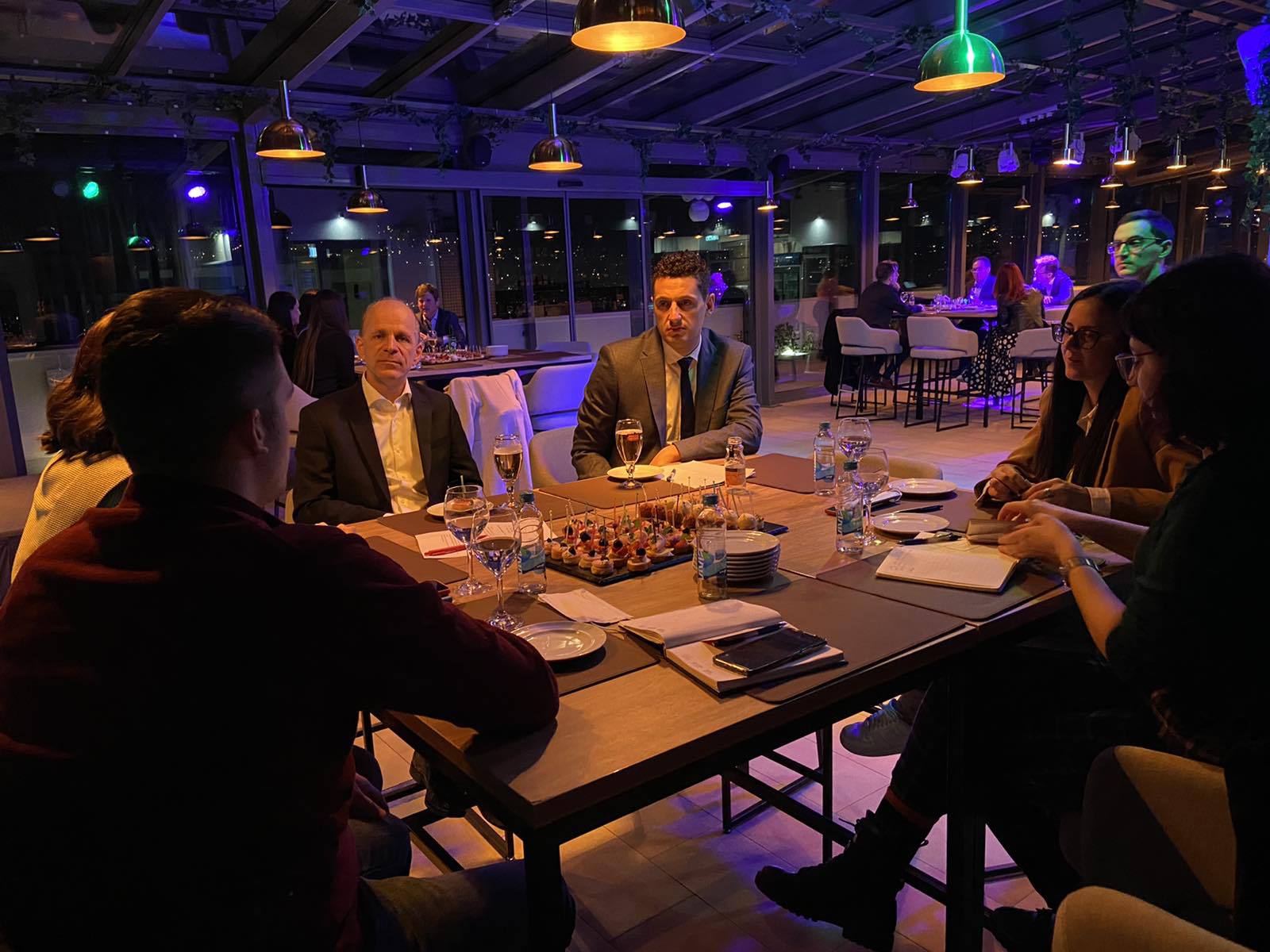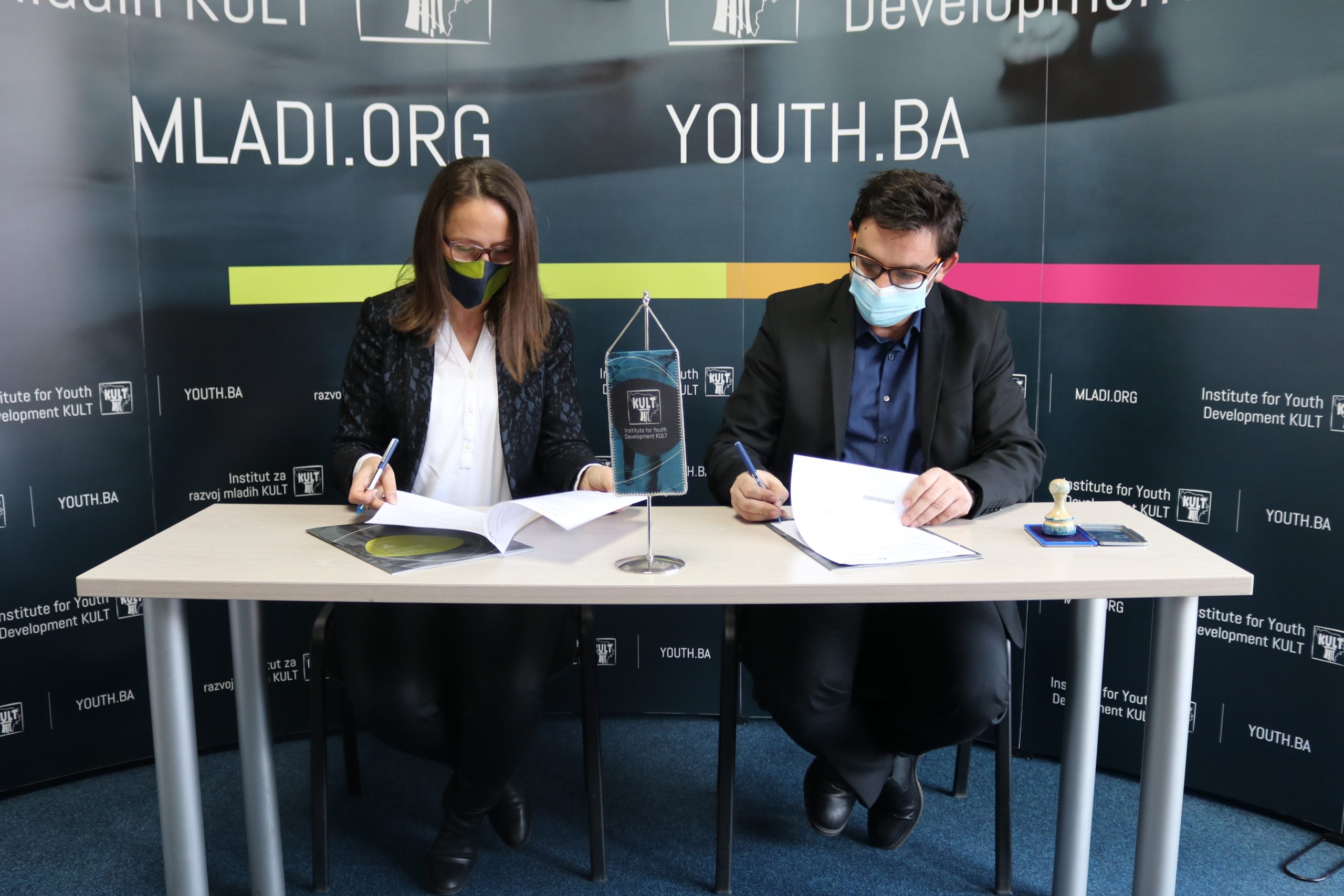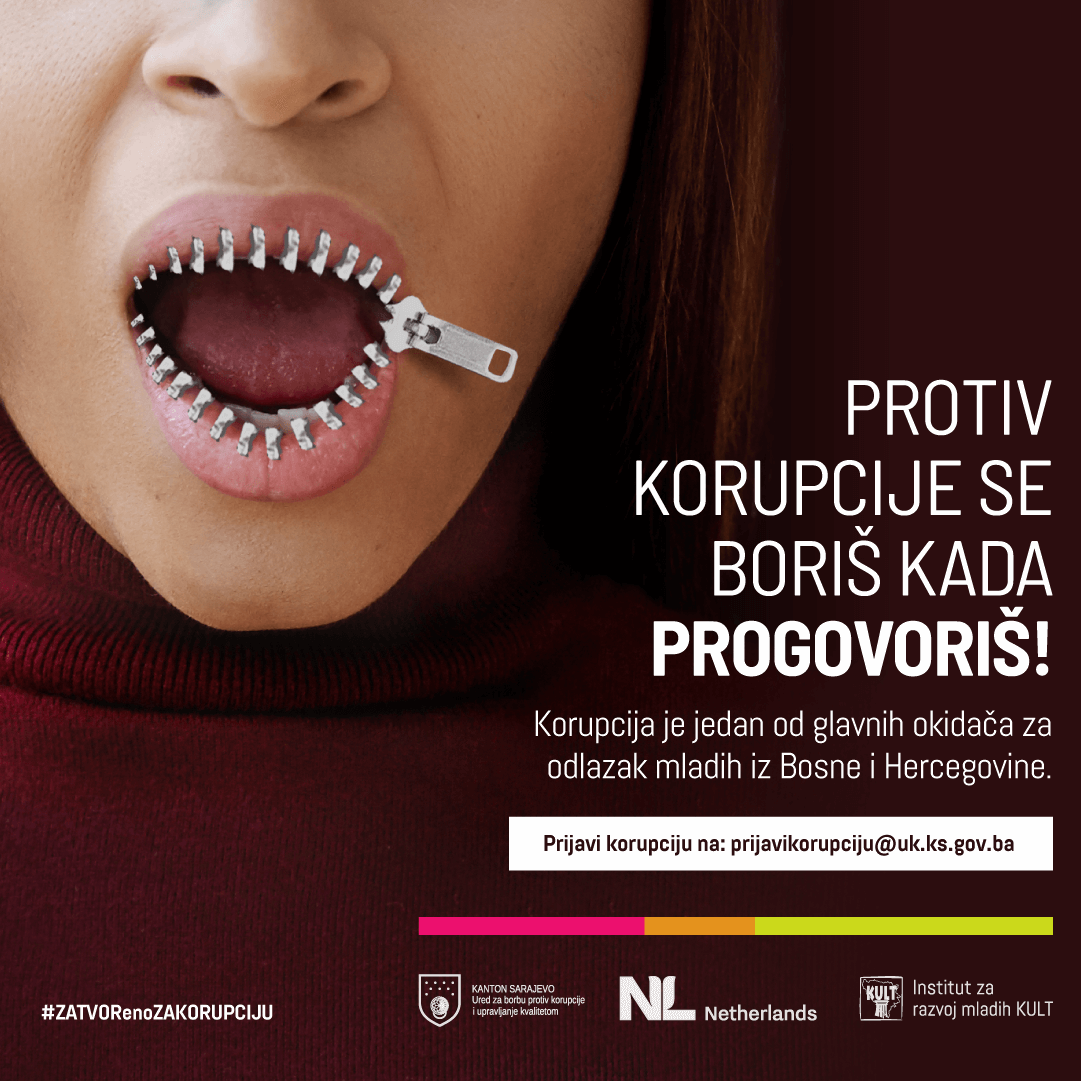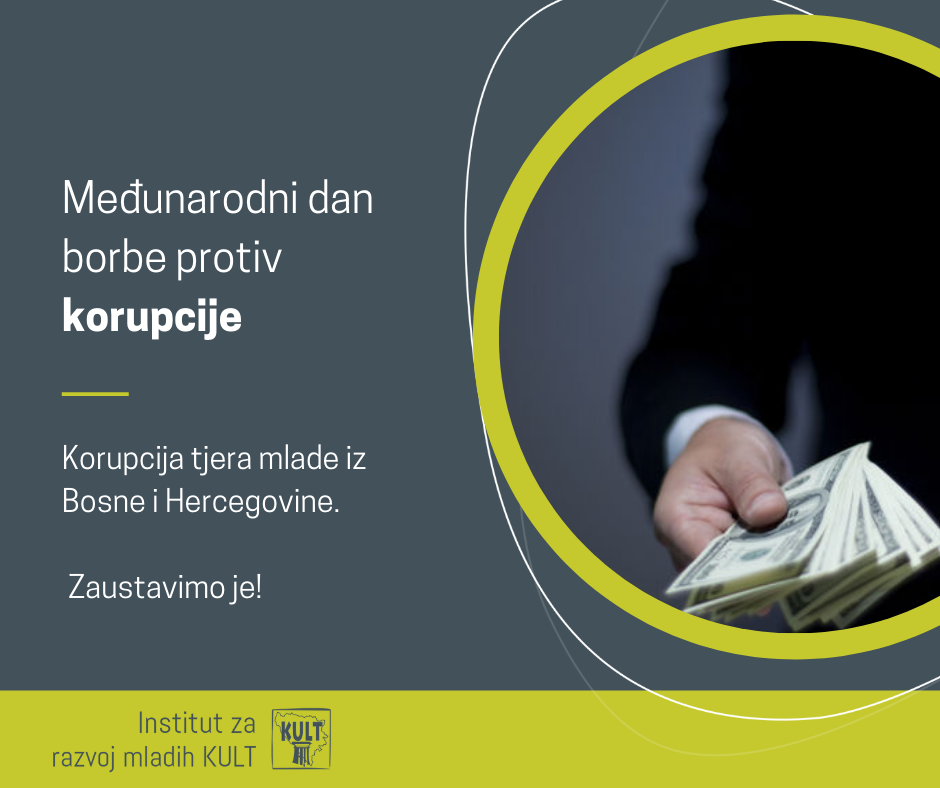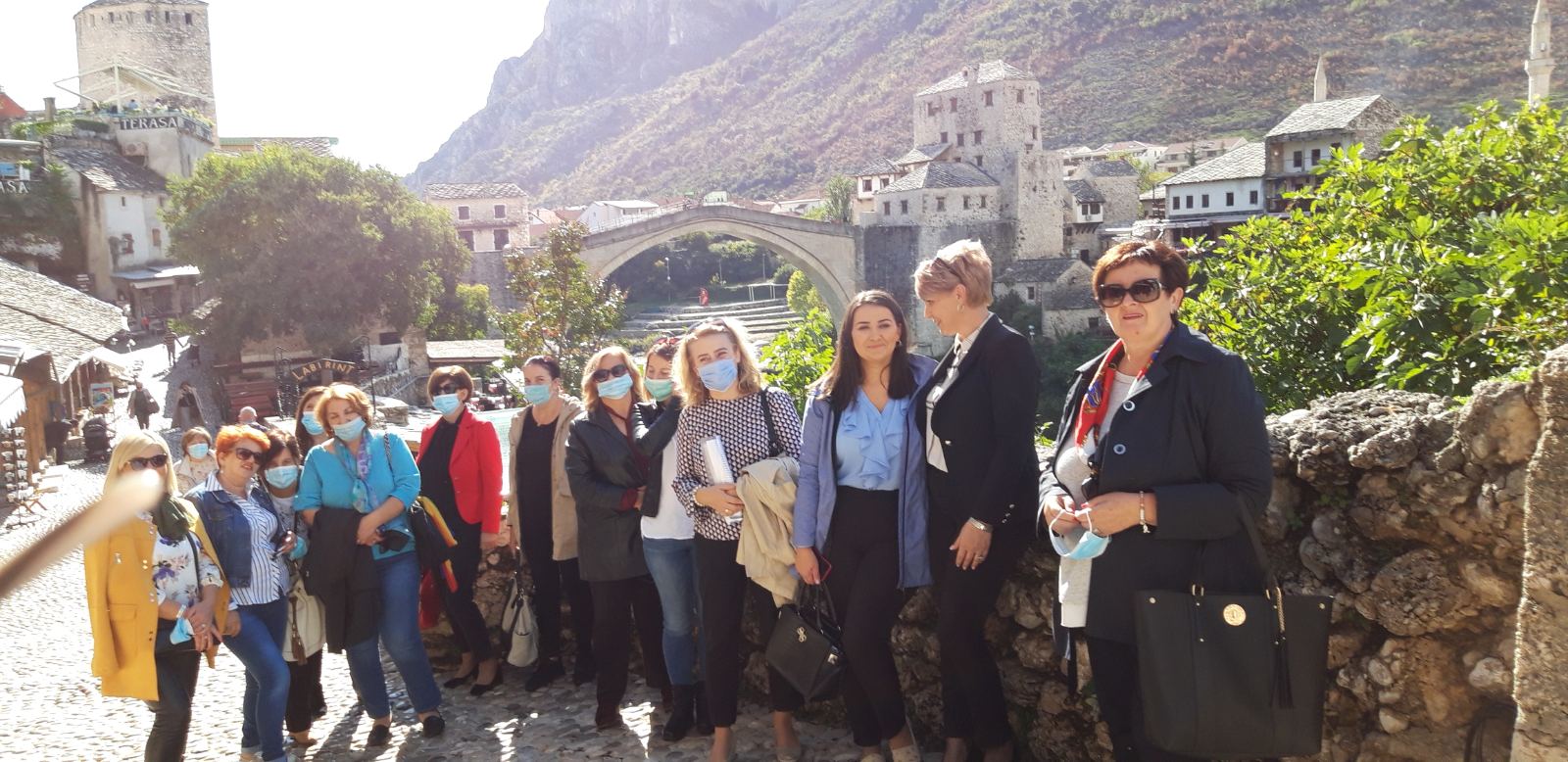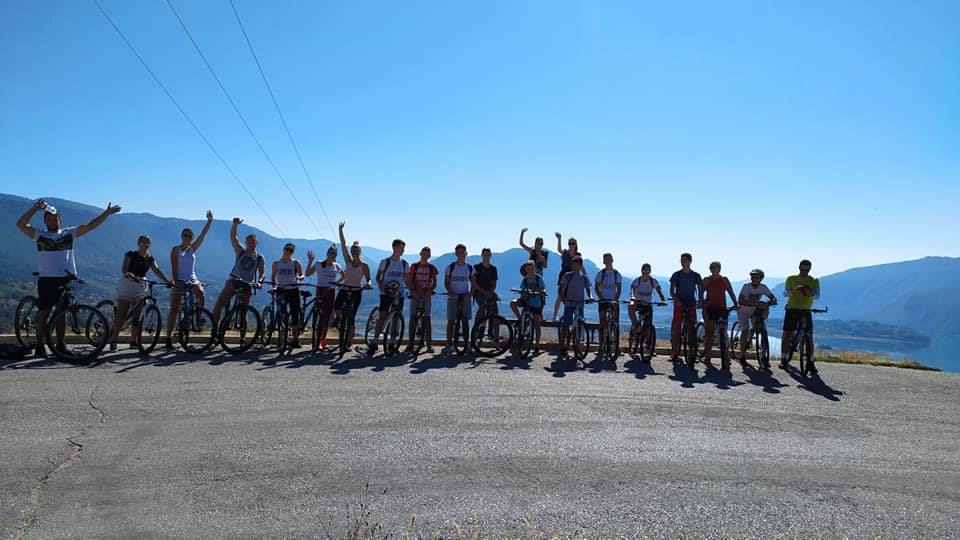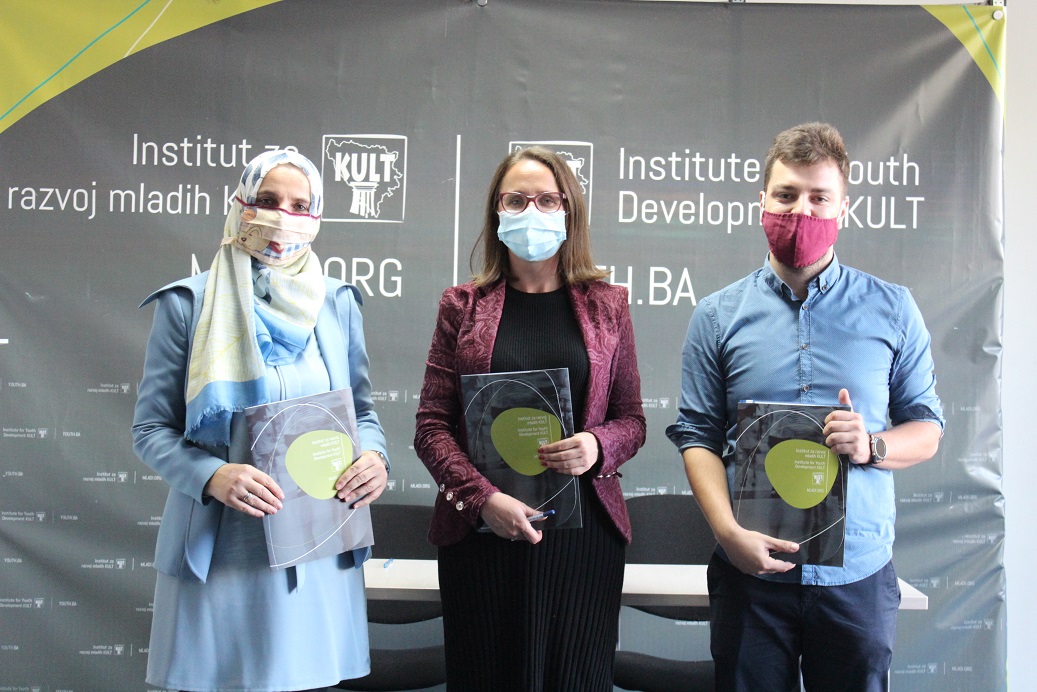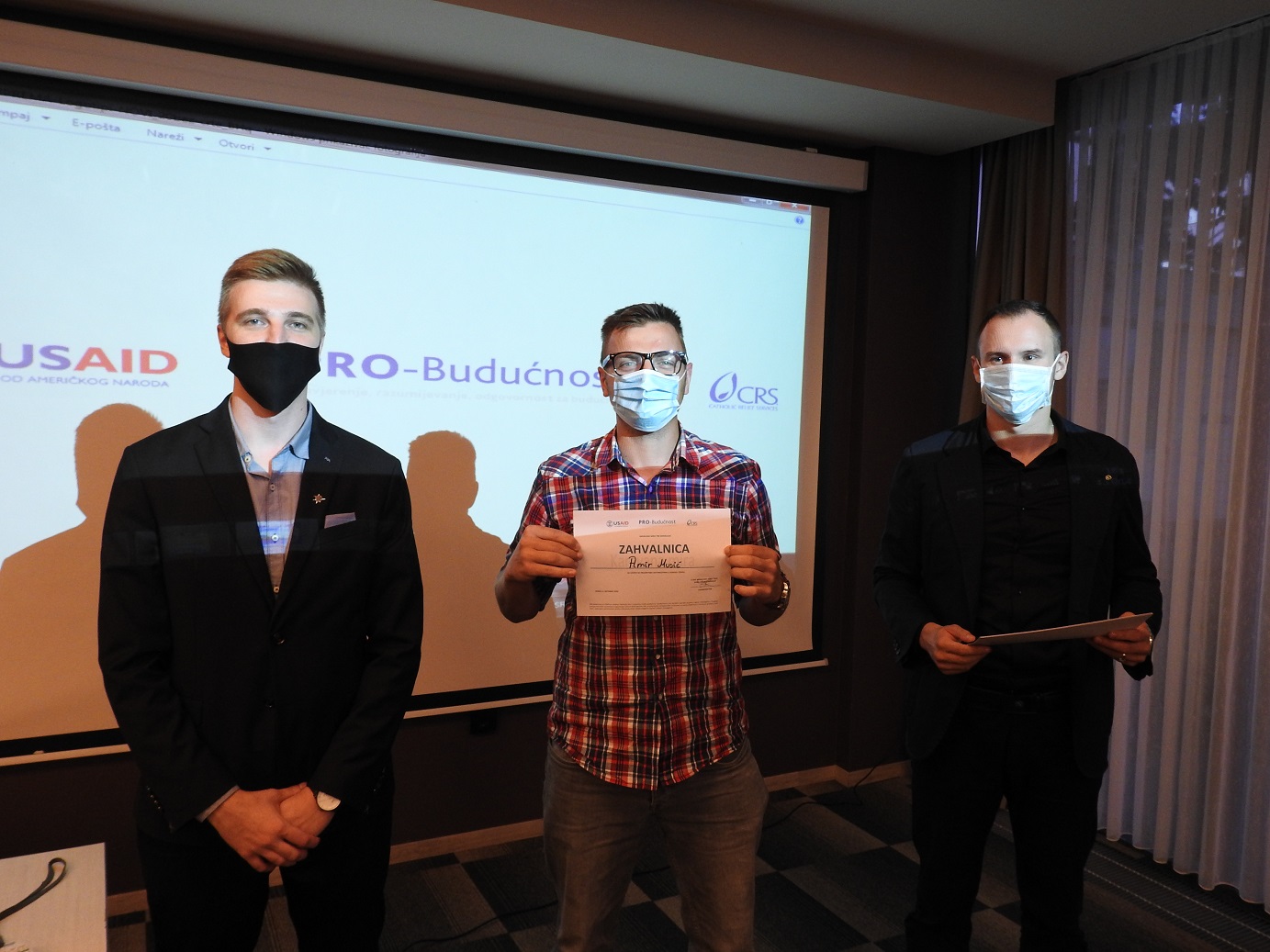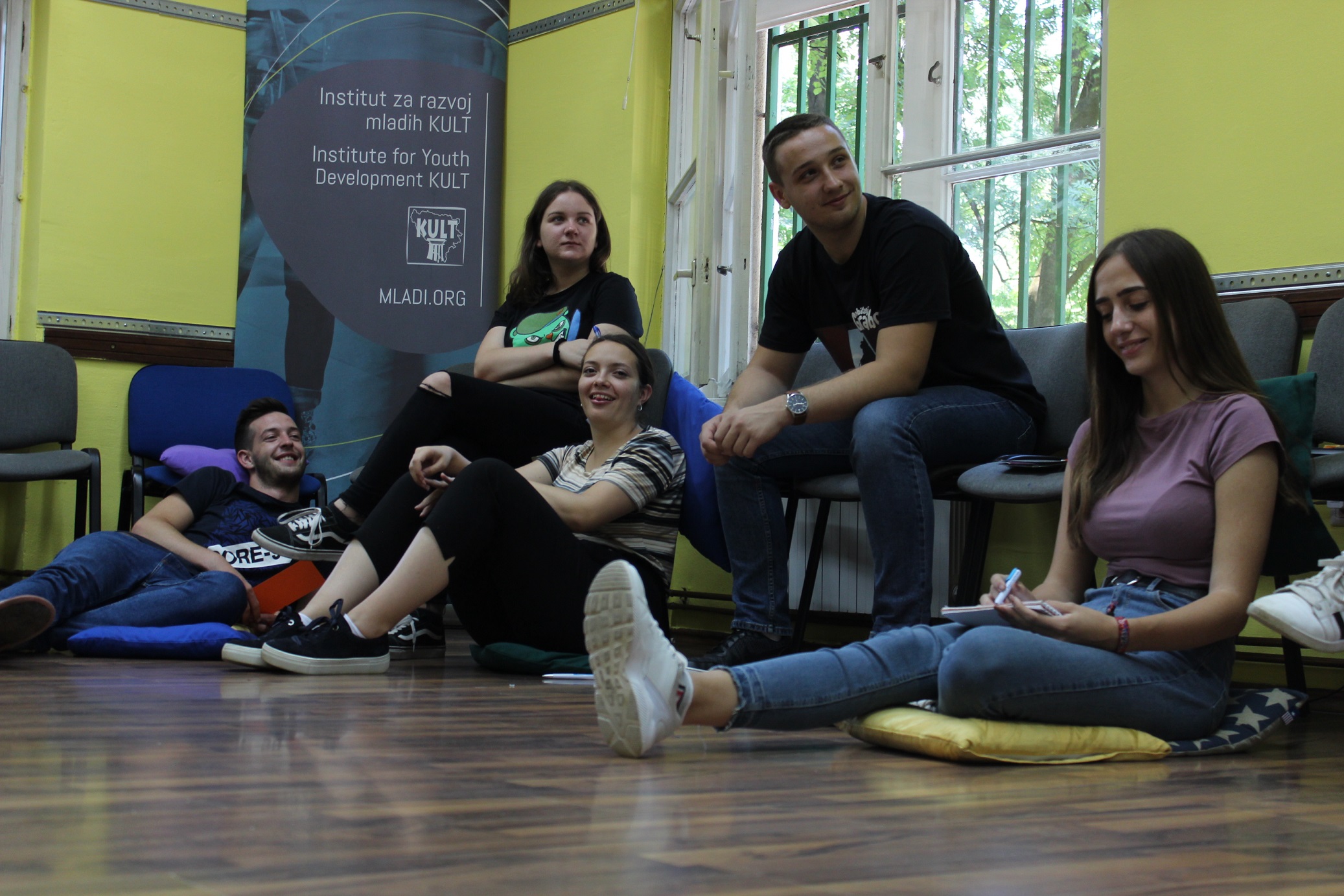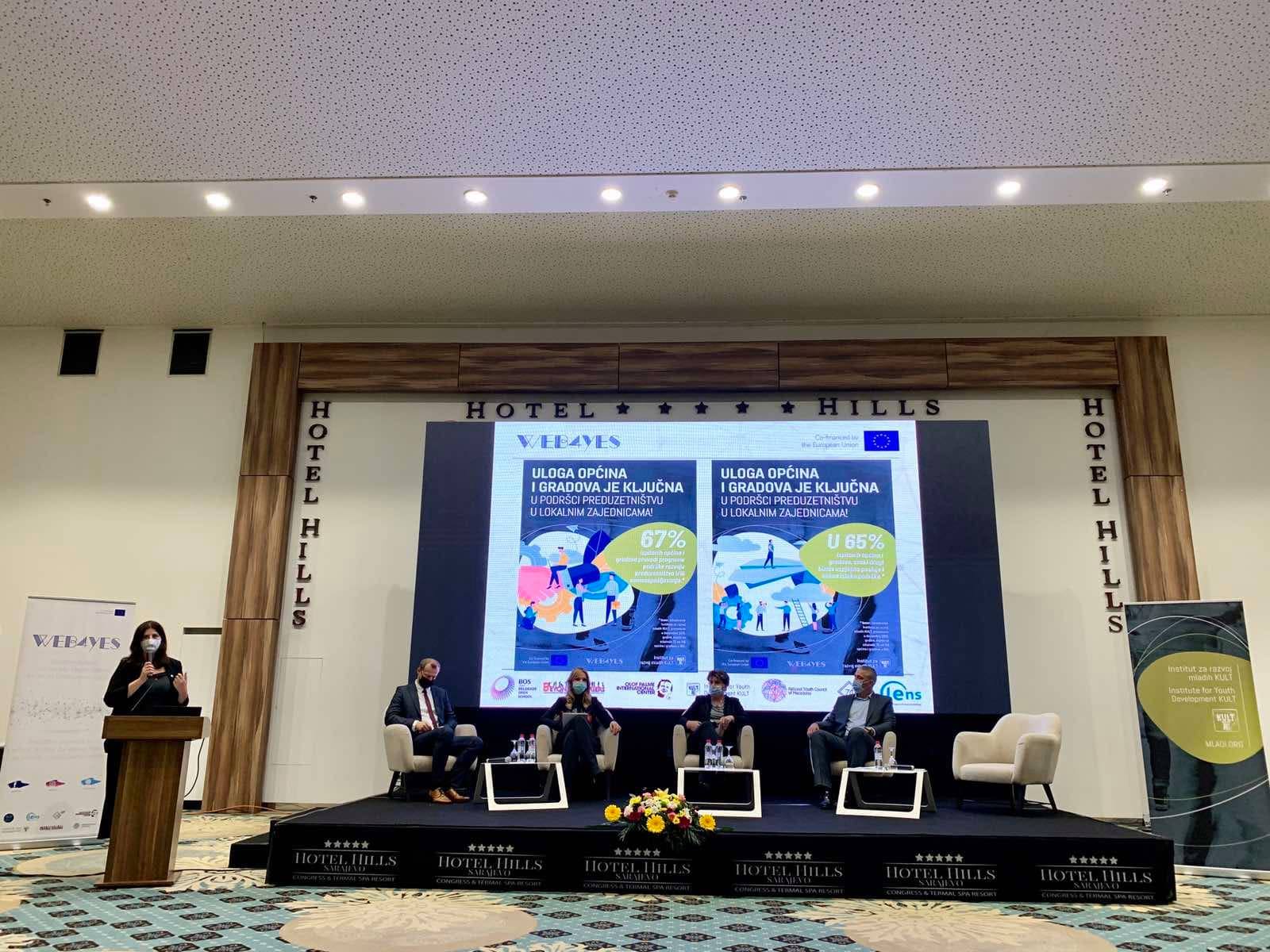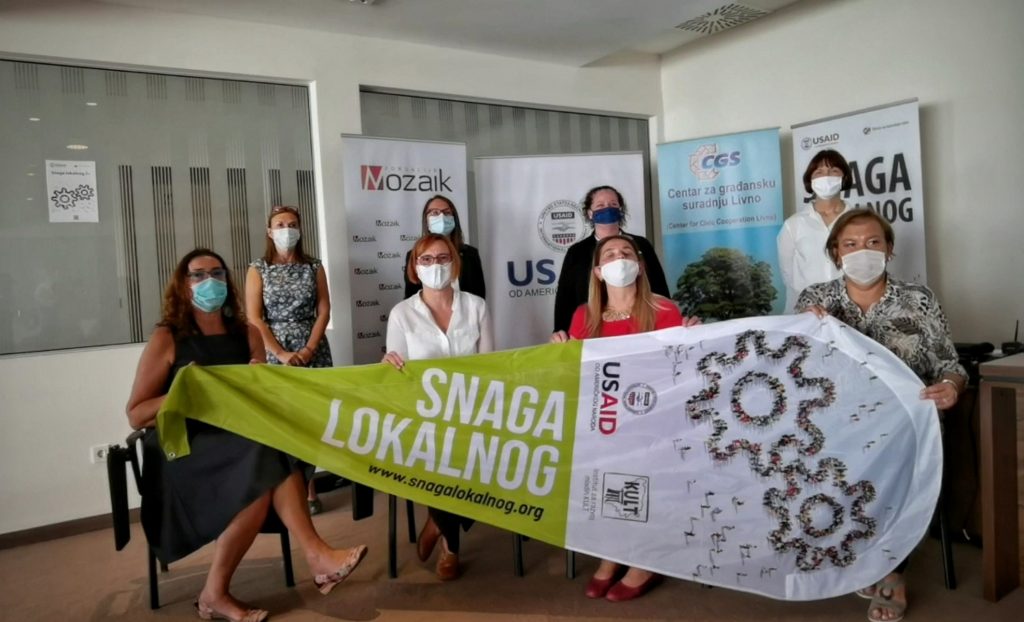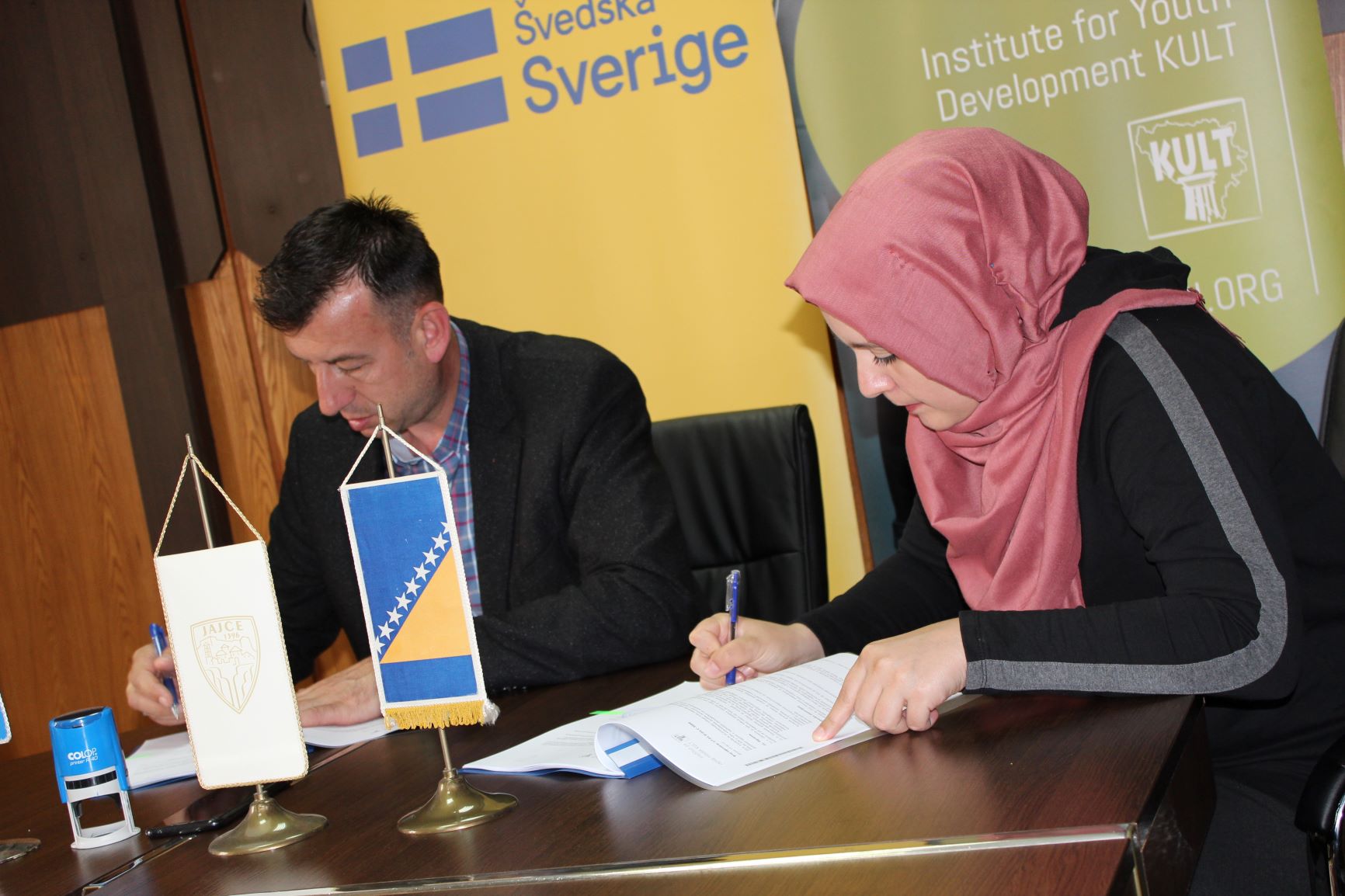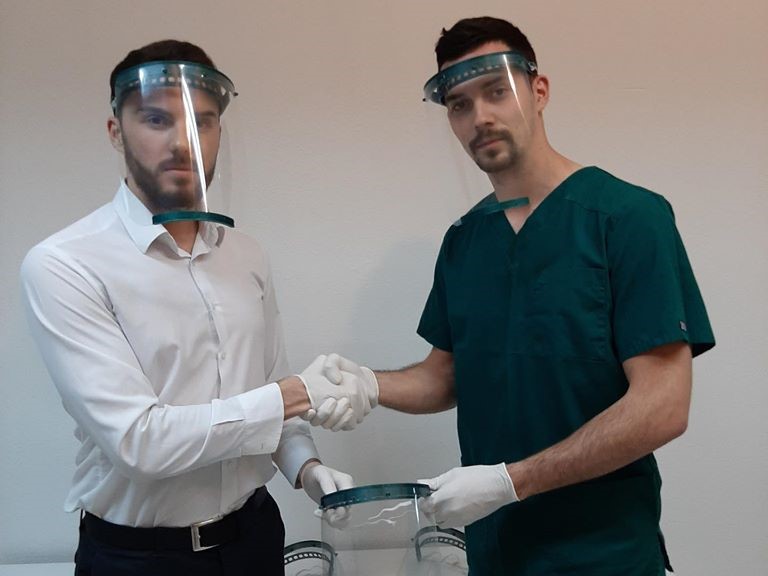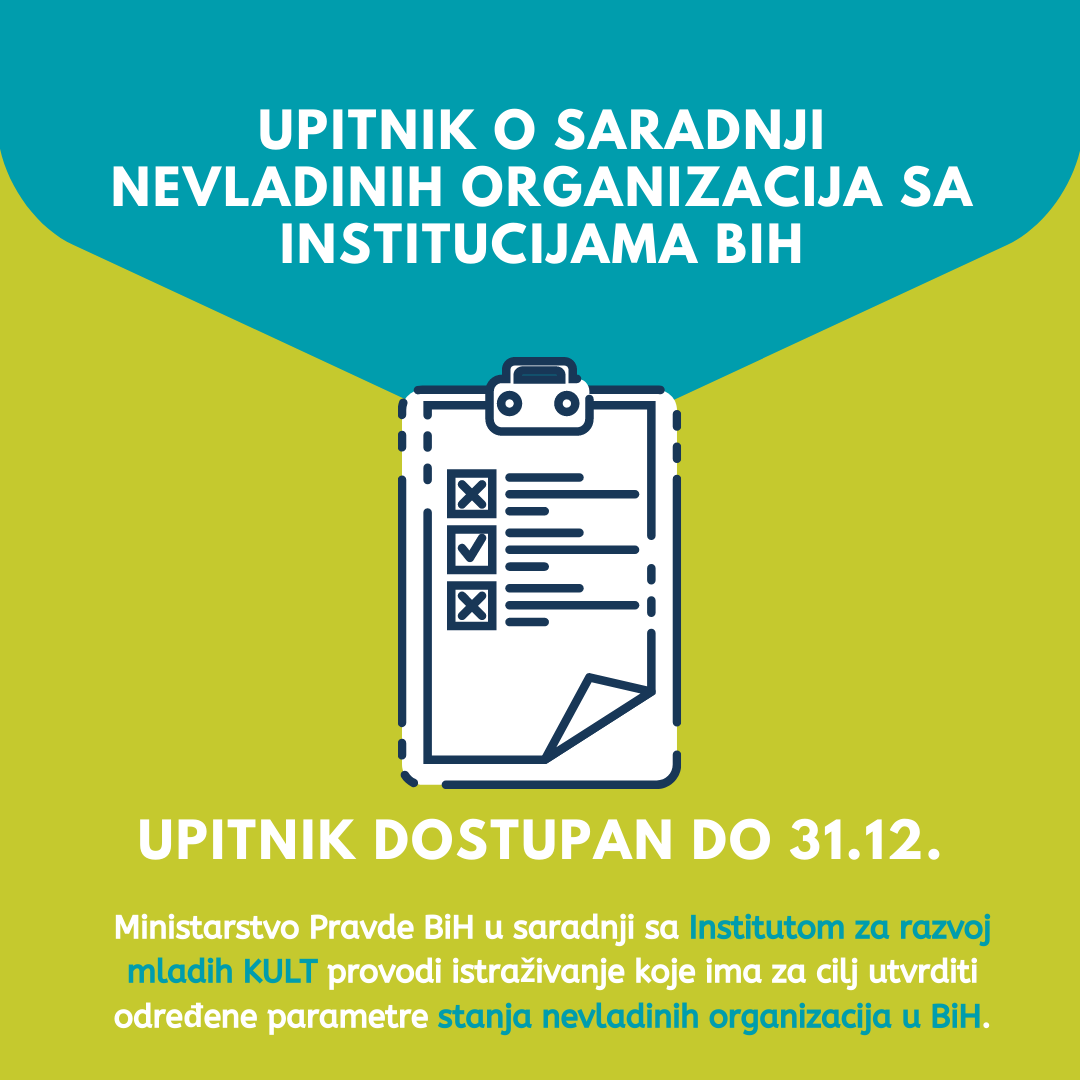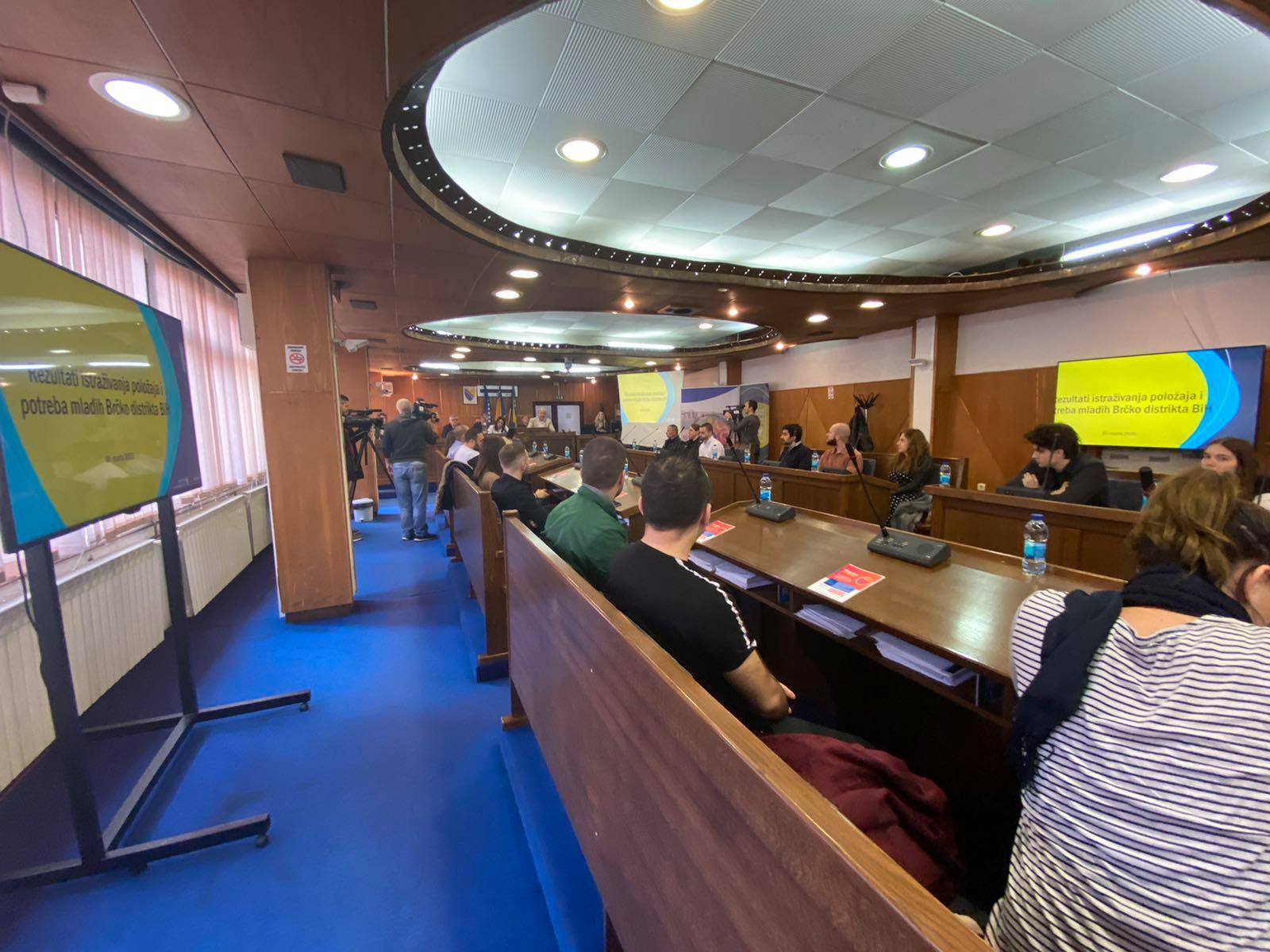- About us
- Areas
- Services
- Events
- Resources
- Join us
- About us
- Areas
- Services
- Events
- Resources
- Join us
Successful orange collaboration – Strong message sent to young people through photos, film, and a panel discussion
The collaboration between the Institute for Youth Development KULT and Gimnazija Dobrinja resulted in interesting activities as part of the #OrangeDay commemoration...
Byadmin26.05.2023Director-General of Sida Discusses Support to Entrepreneurs and Civil Society During Visit to BiH
Director-General of Sida, Ms. Carin Jämtin visited Bosnia and Herzegovina yesterday. During...
Byadmin01.03.2023Youth Are the Heart of Sarajevo!
Youth truly are the heart of Sarajevo and 50 young people showed...
Byadmin06.02.2023Social mentoring for gender equality!
For the past few years, Bosnia and Herzegovina, like the rest of...
Byadmin01.02.2023Irena Stojcevska about social mentoring and successes
For the past few years, Bosnia and Herzegovina, like the rest of...
Byadmin29.01.2023Who are the #WomenMakingDifference? Meet Anjeza Bojaxhiu today!
For the past few years, Bosnia and Herzegovina, like the rest of...
Byadmin09.01.2023#YOUTH WORK
Successful orange collaboration – Strong message sent to young people through photos, film, and a panel discussion
The collaboration between the Institute for Youth Development KULT and Gimnazija Dobrinja resulted in interesting activities as part of the #OrangeDay commemoration today....
Byadmin26.05.2023Youth Are the Heart of Sarajevo!
Youth truly are the heart of Sarajevo and 50 young people showed exactly why when they supported Sarajevo’s candidacy for the European Youth...
Byadmin06.02.2023Social mentoring for gender equality!
For the past few years, Bosnia and Herzegovina, like the rest of the world, has been marking every 25th day of the month...
Byadmin01.02.2023Irena Stojcevska about social mentoring and successes
For the past few years, Bosnia and Herzegovina, like the rest of the world, has been marking every 25th day of the month...
Byadmin29.01.2023Who are the #WomenMakingDifference? Meet Anjeza Bojaxhiu today!
For the past few years, Bosnia and Herzegovina, like the rest of the world, has been marking every 25th day of the month...
Byadmin09.01.2023Institute Celebrates International Volunteer Day With Corporate Volunteering
The staff of the Institute for Youth Development KULT celebrated International Volunteer Day in the most fitting pursuit – volunteering. This decision was driven by the...
Byadmin09.12.2021Institute Hosts Event “Volunteer Now for Our Common Future”
In celebration of International Volunteer Day, the Institute for Youth Development KULT organized a conference called “Volunteer now for our common future.”
Byadmin07.12.2021ROUTE WB6 Volunteers Help With 16th Pravo Ljudski Film Festival on Solidarity
Pravo Ljudski Film Festival is another partner of the Institute for Youth Development KULT in the implementation of the cross-border volunteer exchange program ROUTE WB6 in Bosnia...
Byadmin03.12.2021#DOGAĐAJI
april, 2024
#ORANGE DAY
Successful orange collaboration – Strong message sent to young people through photos, film, and a panel discussion
The collaboration between the Institute for Youth Development KULT and Gimnazija Dobrinja resulted in interesting activities as part of the #OrangeDay commemoration today....
Byadmin26.05.2023Social mentoring for gender equality!
For the past few years, Bosnia and Herzegovina, like the rest of the world, has been marking every 25th day of the month...
Byadmin01.02.2023Irena Stojcevska about social mentoring and successes
For the past few years, Bosnia and Herzegovina, like the rest of the world, has been marking every 25th day of the month...
Byadmin29.01.2023Youth Are the Heart of Sarajevo!
Youth truly are the heart of Sarajevo and 50 young people showed exactly why when they supported Sarajevo’s candidacy for the European...
Byadmin06.02.2023Youth Are the Heart of Sarajevo!
Youth truly are the heart of Sarajevo and 50 young people showed exactly why when they supported Sarajevo’s candidacy for the European...
Byadmin06.02.2023The Project That Melted Hearts of Women in Herzegovina
At the end of October, Citizens’ Initiative Mostar, with the help of PRO-Future’s small grants programs, successfully completed their project “Better Together”....
Byadmin02.11.2020#ECONOMIC DEVELOPMENT
Never Too Early For New Companies to Start Advocating for Human Rights
The project “Improving Human Rights Corporate Accountability in the BiH Business Sector” funded by the European Union and implemented by the Institute...
Byadmin17.11.2020Presentation of Regional Research on Social Entrepreneurship
A representative of the Institute for Youth Development KULT took part in...
Byadmin09.11.2020Support from Local Administrations Crucial for Entrepreneurs
The Institute for Youth Development KULT hosted a conference on the...
Byadmin16.10.2020USAID to Invest 12 Million in Continuing Localworks Activity
The United States Agency for International Development (USAID) in Bosnia and Herzegovina...
Byadmin17.09.2020Young Architect from Jajce Wins Prestigious Award for Innovation and Design
Amela Iskrić-Hadžić, a young architect from Jajce won the second prize for...
Byadmin07.09.2020Supporting BiH Businesses During Coronavirus Pandemic by Extending VAT Payment Deadline
The Institute for Youth Development KULT supports and applauds the Proposal law...
Byadmin10.04.2020HAS Robotics Switch from Making Robotic Arms to Face Shields for Medical Staff
HAS Robotics is a company specializing in robotic arms, but is now...
Byadmin09.04.2020International Anti-Corruption Day – What Do Youth Have to Say?
On this day, thirteen years ago, the United Nations adopted the Convention against Corruption in Mexico, with December 9 being marked as International Anti-Corruption...
Byadmin11.01.2022


